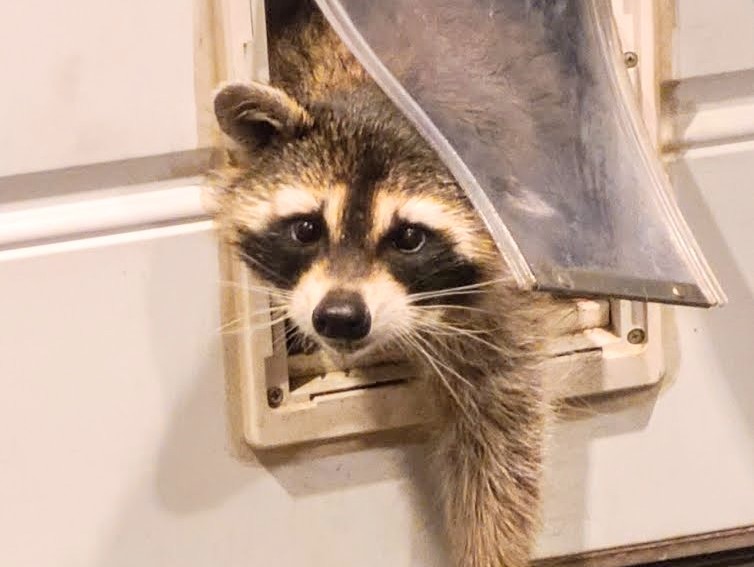Cats and small dogs are often fairly oblivious when it comes to the dangers of outdoor living. As they have never been inoculated to the harsh realities of obtaining food and resources for themselves, they may not have developed an appropriate fear of unknown wildlife. When pets escape or are left out, they sometimes let curiosity get the best of them by approaching wild raccoons. This can result in mild or even serious injuries, so you should be aware of all likely dangers and call raccoon removal in Kitchener if you frequently encounter masked mammals on your property.
Why Would a Raccoon Attack a Pet?
Raccoons are omnivores that eat a large array of small plants and animals. Raccoons are not, however, chase predators that actively hunt animals similar in size and weight to themselves. In desperate situations, raccoons may prey upon exposed kittens, but they may also ignore kittens or cats entirely. Generally, raccoon attacks against pets occur when raccoons feel threatened by wandering cats or dogs, leaving their natural fight or flight response to kick in.
Dogs who haplessly chase raccoons may be surprised when a cornered raccoon lashes out. Medium or large dogs can easily injure smaller animals, and a raccoon fighting for its life may try desperately to inflict harm. Cats are naturally curious and may investigate strange animals they haven’t seen before. When a raccoon interprets this as an aggressive advance, it may try to defend itself. When kits are in the area, mother animals are likely to respond much more fiercely than they would otherwise.
How to Deter Raccoons From Coming to Your Property
Of course, the best way to prevent conflicts between your pets and wildlife is to keep pets indoors. For some pet owners, however, this may be impractical or impossible. In these cases, homeowners should avoid attracting animals to their property inadvertently. If you keep trash outdoors without a tight lid, feed pets outside, or have a birdfeeder, you may not realize that you are inviting wildlife to investigate your home. If you have areas that may be appealing as a den site such as tight spaces underneath a porch, animals may see your property as a suitable place to set up a living space.
Some things you can do to keep prospective raccoon residents away include:
- Sealing garbage lids tightly
- Keeping food sources for pets and other animals indoors
- Sealing off open areas on your property
- Blocking gardens with wire mesh fencing
Unfortunately, doing these things won’t necessarily prevent animals from making use of your property. Because animals don’t recognize human boundaries, they may be drawn to negligent neighbours’ homes before traversing over to yours. For this reason, it is important to communicate with your neighbours on the best practices for preventing intrusions.
While raccoons are a potential threat to pets, there are other animals comfortable with urban spaces that can harm cats and small dogs. While coyotes don’t tend to feed actively on pets, opportunistic ones can take advantage of lounging cats or small dogs left unattended. Every pet owner must decide whether the risk of having their pet outdoors is acceptable. Cats left outdoors are prone to injury or car accidents and may attack local species, harming biodiversity. Outdoor cats, however, are often happier and more fit than indoor ones.
If you have discovered an entrenched raccoon presence on your property, don’t attempt to perform a removal on your own. At Skedaddle Humane Wildlife Control, we have years of experience removing raccoons from residential homes and sealing potential entryways. Our humane process ensures that removed animals and their young aren’t thrust into dangerous conditions after eviction. Contact Skedaddle today.



